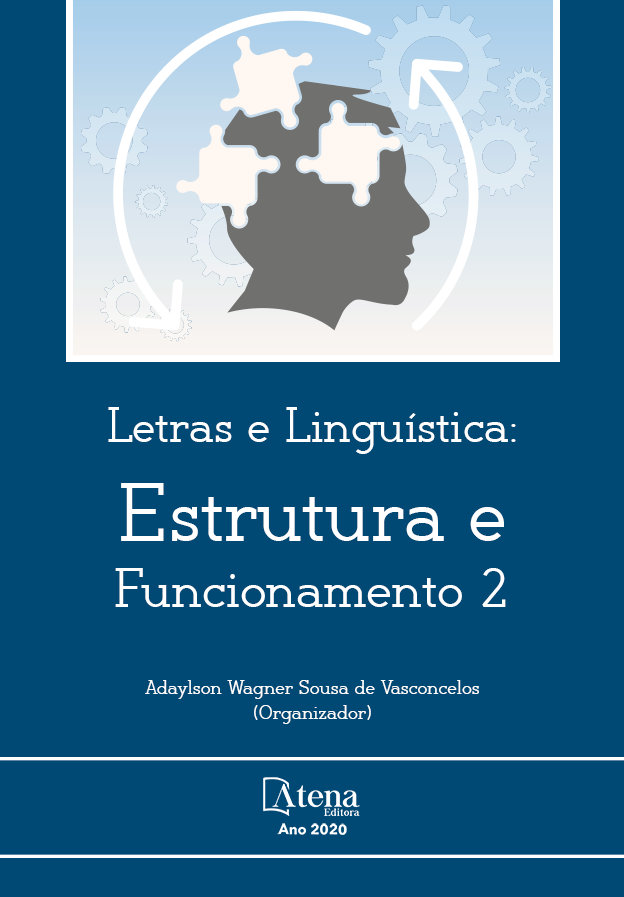
EU VOS ORDENO MARIDO E MULHER! A MEMÓRIA DISCURSIVA NO DILEMA DA UNIÃO CIVIL NO ESTADO BRASILEIRO
Neste artigo, objetivamos analisar a memória discursivo-religiosa, com especial atenção aos lapsos de memória em falas de um parlamentar do Estado brasileiro, durante um debate sobre o Projeto de Lei Estatuto da Família. Este trabalho se dá à luz da Análise de Discurso de Linha Francesa, a partir dos escritos de Michel Pêcheux e Eni Orlandi. Memória discursiva (interdiscurso) é constituída pelos já ditos na história que, no momento da elaboração de um acontecimento discursivo atual, são resgatados, produzindo sentidos. Esta pesquisa é qualitativa, de cunho interpretativista e atravessou o seguinte percurso metodológico: estudo bibliográfico, download (YouTube) do vídeo que contém o debate em questão, transcrição com auxílio do Programa Audacity, acompanhada de uma pré-análise e, finalmente, análise detalhada do corpus. Nossos dados revelam que Ronaldo Fonseca, ao defender a legitimidade do PL, que restringe o conceito de família à união de um homem, uma mulher e possíveis filhos: (1) resgata o discurso da Constituição Federal (1988) e do Código Civil (2002), no entanto produz dois esquecimentos de memória: os princípios da CF/88 que defendem a dignidade, liberdade e não discriminação por qualquer motivo, e da hermenêutica jurídica adotados pelo Supremo Tribunal Federal na decisão em favor das uniões homoafetivas (2011); (02) o deputado alude à narrativa bíblica do Gênesis (Adão e Eva), como fundante do pensamento judaico-cristão, evidenciando o esquecimento dos outros mitos fundantes da cultura ocidental, como é o caso do mito dos três gêneros humanos, narrado por Aristófanes em O Banquete, de Platão. No âmbito do Estado Democrático de Direito, a memória discursivo-religiosa em tela mostra-se seletiva, enviesada na ideologia religiosa do parlamentar, que intenciona impor a todos os cidadãos a sua moral religiosa. Por usurpar os princípios da dignidade da pessoa humana, o direito de amar e de existir, advertimos que deve ser refutada.
EU VOS ORDENO MARIDO E MULHER! A MEMÓRIA DISCURSIVA NO DILEMA DA UNIÃO CIVIL NO ESTADO BRASILEIRO
-
DOI: 10.22533/at.ed.4982006108
-
Palavras-chave: Memória discursiva. Projeto de Lei Estatuto da Família. Mitos fundantes. Discurso religioso. Estado Democrático de Direito.
-
Keywords: Discursive memory. Family Statute Bill. Founding myths. Religious speech. Democratic State of Law.
-
Abstract:
In this article, we aim to analyze the discursive-religious memory, with special attention to the memory lapses in the speeches of a Brazilian Congressman, during a debate on the Family Statute Bill. This work takes place in the light of the French Discourse Analysis, based on the writings of Michel Pêcheux and Eni Orlandi. Discursive memory (interdiscourse) is constituted by what has already been said in history that, at the moment of the elaboration of a current discursive event, are rescued, producing meanings. This is a qualitative research, of interpretative analysis, that has come through the following methodological path: bibliographic study, download (YouTube) of the video containing the debate under discussion, transcription (along with pre-analysis) by using the software Audacity and, finally, a detailed analysis of the corpus. Our data reveal that Ronaldo Fonseca, in defending the legitimacy of the PL, which restricts the concept of family to the union of a man, a woman and the couple’s possible children: (1) rescues the discourse of the Federal Constitution (1988) and the Civil Code (2002) ), however it produces two memory lapses: the principles of the Constitution that defend the dignity, freedom and non-discrimination for any reason, and of the legal hermeneutics adopted by the Supreme Federal Court in the decision in favor of the same-sex unions (2011); (02) the congressman alludes to the biblical narrative of Genesis (Adam and Eve), as the founder of Judeo-Christian thought, evidencing that other founding myths of Western culture are forgotten, as is the case of the myth of the three human genres, narrated by Aristophanes in Plato's Symposium. In the context of the Democratic State of Law, the discursive-religious memory investigated is selective, biased in the congressman religious ideology, which intends to impose his religious morality on all citizens. Because it usurps the principles of human dignity, the right to love and to exist, we warn that it must be refuted.
-
Número de páginas: 22
- Everaldo dos Santos Mendes
- Marildo de Oliveira Lopes


